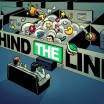
For those who have been living under a rock, or perhaps are international readers, a little over a week ago there was a shooting in a church in Charleston, South Carolina. I won’t go into the shooters particular philosophies because one: I don’t believe it’s worth any additional attention, and two: it is not relevant to the gaming industry. The part that is relevant is that he himself flew the flag of the Confederate States, sparking renewed controversy about the flag and its use. This controversy has resulted in many outlets, such as Amazon and Walmart to cease selling any items featuring the Confederate “Stars and bars” flag. This eventually included Apple taking down anything on the app store that features the flag several days ago. Apple softened their stance fairly quickly, as there are numerous uses of the flag set in the context of the American Civil War, and presented solely in a historical context. However it is worth looking at this case, and what it means for the games industry.
This is a sensitive topic on several levels, so I will be doing my best to address the general legal and ethical truths and how they translate to the business decisions. To start off, I think we should form a foundation to understand, in broad strokes, the legal basis for what is going on.
Reaction by society
What must be remembered when considering the Confederate Flag, no matter what your individual feelings on it or its origins are, it is currently commonly used, and commonly associated with violent racist ideologies. It doesn’t matter if this aspect is inherent in the flag as a symbol as some see it, or because the flag is a symbol for other things but has been co-opted by violent radicals. The fact of the matter is that in most places that violence and bigotry are what the flag stands for to the observer, so for anyone who doesn’t see the flag as a symbol of racism, be aware that is what MOST people see it as. The relative prevalence of the symbol then also emboldens those violent bigoted racists to think that their opinion is more accepted than it truly is. For everyone to collectively refute the symbol sends a powerful message that this is in fact not tolerated, marginalize them, and remove their voice. It helps to let them know that there is no silent majority behind them, and in fact their point of view is rejected by society at large.
I may be violating Godwin’s Law with this, but I think it is a valid comparison. The Swastika is an ancient symbol used across many different cultures dating to prehistory. The Nazis hijacked this symbol in part to tie themselves across history, and now no matter what meanings this symbol is intended to convey, it now represents the atrocities of Nazi Germany. Those who would use this symbol deserve to be de-voiced and marginalized, and thus the symbol is generally illegal in Germany to this day. Many games that would represent Nazis, or Nazi like enemies, must have a special version made for the German market that distance the representation from actual Nazi Germany iconography.
Is this Germany trying to paper over their history? Almost certainly not. This is almost certainly an act of deep contrition and national embarrassment. This doesn’t mean there aren’t still some Neo-Nazi elements in the country, some complicated after the German reunification in the 1990’s. Given history, it’s reasonable for Germany to have very little tolerance for this ideology.

For the young-uns out there who don’t realize there was a period where there were 2 Germany’s
I see the case of Nazi symbols in Germany and the Confederate flag as very similar. Is this something that should continue in perpetuity? Possibly not, but it is appropriate to try to address the issues associated with these symbols in part by restricting those symbols. So long as this is done to remove the power of the symbol, make it appear that it is of something socially unacceptable, then once that is firmly established, then these restrictions can be lifted. This does get tricky when getting to the details, though. Do southern rock bands need to get new album art? Will future video releases of the Dukes of Hazard need to have the General Lee’s roof blurred? Will historical video games covering the American Civil War need to be edited? Tricky to navigate gracefully, but truthfully even having the argument is progress. It means that there is a discussion going on about the meaning of the flag, and that we’re no longer simply ignoring the implications of what it represents.
Removing the flag from storefronts is essentially saying that we acknowledge what this is a symbol of, and that even if it is subliminal, indirect, or unintentional, we do not want to contribute to the perception that what this represents is acceptable.
Apple’s side
Apple’s response to this was to remove any app on their store that featured any confederate flag. It’s important to note that this is not censorship as many are crying. Apple is its own entity and entirely within their right to dictate what is and is not allowed on their platform. They are not obligated to offer any particular product, ideology, or image a place on their storefront. In light of recent events, the use of the Confederate Flag has become a lightning rod of controversy and one that many businesses no longer have any interest in ignoring. The right to free speech comes in to play if it is imposing on a protected form of speech. Take the well worn example of yelling fire in a crowded theater. That is not a protected form of expression. What exactly defines a protected form of expression is not something so clearly defined, and can change with the times, but it is not an infringement to refuse to promote or sell the symbol of a governing body that has not existed for over 100 years.
As for how Apple implemented these removals, it does seem very heavy handed. That is until you realize that they don’t have armies of people moderating their storefront. They probably told something like a half dozen people to work late to come up with a list of games that have the Confederate flag in them, and they did this by sifting through all the screenshots that you see on the store and made a list of any titles that displayed the flag there. Not surprisingly this would include a lot of American Civil War games, where the flag is included only as a historical note.
Apple, however, did not draw this distinction. They removed all games irrespective of the kind of use the flag had. They cited their own standards for this:
19.1 Apps containing references or commentary about a religious, cultural or ethnic group that are defamatory, offensive, mean-spirited or likely to expose the targeted group to harm or violence will be rejected
I like to refer to this as a “catch all”. There are plenty of uses, e.g. Civil War historical games, where the context of the presentation of the Confederate flag is not mean spirited. However due to the current climate, this is an acceptable stance to take for a heavy handed, zero tolerance approach. Thus, a one size fits all reaction to pull EVERYTHING down. It wouldn’t be unfair to call this approach disproportionate,considering how it impacts developers, but then again…

Developers responses
It seems that most developers are understanding of Apple’s move. Very frustrated, perhaps, but understanding. Two particular examples stick out for different, but valid approaches to take to this situation.
First is HexWar Games, makers of historical war games such as Civil War 1863, took a very straightforward and pragmatic approach. The flag was only used because it was the one in use at that time. With that flag being considered unacceptable, they have said that they would simply replace it with a lesser known, completely different earlier version of the confederate flag. This strikes me as a good compromise. It may be slightly anachronistic, but it is a valid symbol of that side of the conflict, while not carrying the same symbolic baggage of the other flag.

An 1861 version of the flag. Not something that can be confused with the Stars and Bars.
On the other hand, there is also Game Labs, makers of Ultimate General: Gettysburg. Their stated goal is for absolute full accuracy, and as such are not interested in any compromise. However they do accept, and even seem to support (even if tepidly) Apple’s decision. They will accept their game being unavailable and hope that this will achieve the intended goal and help improve the future.
Further developments and Takeaways
Apple has already started to back away from the hard stance they originally presented. They can recognize that historical uses of the flag are not at this time inherently mean spirited, or harmful. Some games are being restored to the app store. In particular, the uncompromising Ultimate General: Gettysburg has been restored after discussions between Game Labs and Apple. This, in turn, seems like a good approach. Use of the flag being a sort of “opt in” action, where it must be reasonably vetted to verify that the use is as a historical element and nothing else. It’s difficult to tell if this is actually what Apple is doing, but we can hope.
The Confederate Flag will always be with us as a historical element. It is something that existed. It is also something that represents horrible things for many people, and we are not obligated to accept its presence to the point where it is comfortable as background noise in our culture. Conflating its meanings of racism with meanings of states rights, or whatever other inoffensive meaning someone may ascribe to it, only serves to perpetuate the awareness, or even acceptance of its offensive meanings. The games industry needs to be aware of this and react appropriately, as it seems it has been in this case.
This is not an assault on freedom of speech, and it is not something that happened under Tim Cook that would not have happened under Steve Jobs. Apple had a reputation for keeping a similar grip on app store content under Jobs as well. This is one company seeing the country taking a hard look at itself vis a vis the confederate flag, and trying to react accordingly. The implementation may have been heavy handed, but it is not inappropriate.
Kynetyk is a veteran of the games industry. Behind the Line is written to help improve understanding of what goes on in the game development process and the business behind it. From “What’s taking this games so long to release”, to “why are there bugs”, to “Why is this free to play” or anything else, if there is a topic that you would like to see covered, please write in to kynetyk@enthusiacs.com








Behind the Line: Apple and the Confederate Flag
For those who have been living under a rock, or perhaps are international readers, a little over a week ago there was a shooting in a church in Charleston, South Carolina. I won’t go into the shooters particular philosophies because one: I don’t believe it’s worth any additional attention, and two: it is not relevant to the gaming industry. The part that is relevant is that he himself flew the flag of the Confederate States, sparking renewed controversy about the flag and its use. This controversy has resulted in many outlets, such as Amazon and Walmart to cease selling any items featuring the Confederate “Stars and bars” flag. This eventually included Apple taking down anything on the app store that features the flag several days ago. Apple softened their stance fairly quickly, as there are numerous uses of the flag set in the context of the American Civil War, and presented solely in a historical context. However it is worth looking at this case, and what it means for the games industry.
This is a sensitive topic on several levels, so I will be doing my best to address the general legal and ethical truths and how they translate to the business decisions. To start off, I think we should form a foundation to understand, in broad strokes, the legal basis for what is going on.
Reaction by society
What must be remembered when considering the Confederate Flag, no matter what your individual feelings on it or its origins are, it is currently commonly used, and commonly associated with violent racist ideologies. It doesn’t matter if this aspect is inherent in the flag as a symbol as some see it, or because the flag is a symbol for other things but has been co-opted by violent radicals. The fact of the matter is that in most places that violence and bigotry are what the flag stands for to the observer, so for anyone who doesn’t see the flag as a symbol of racism, be aware that is what MOST people see it as. The relative prevalence of the symbol then also emboldens those violent bigoted racists to think that their opinion is more accepted than it truly is. For everyone to collectively refute the symbol sends a powerful message that this is in fact not tolerated, marginalize them, and remove their voice. It helps to let them know that there is no silent majority behind them, and in fact their point of view is rejected by society at large.
I may be violating Godwin’s Law with this, but I think it is a valid comparison. The Swastika is an ancient symbol used across many different cultures dating to prehistory. The Nazis hijacked this symbol in part to tie themselves across history, and now no matter what meanings this symbol is intended to convey, it now represents the atrocities of Nazi Germany. Those who would use this symbol deserve to be de-voiced and marginalized, and thus the symbol is generally illegal in Germany to this day. Many games that would represent Nazis, or Nazi like enemies, must have a special version made for the German market that distance the representation from actual Nazi Germany iconography.
Is this Germany trying to paper over their history? Almost certainly not. This is almost certainly an act of deep contrition and national embarrassment. This doesn’t mean there aren’t still some Neo-Nazi elements in the country, some complicated after the German reunification in the 1990’s. Given history, it’s reasonable for Germany to have very little tolerance for this ideology.
For the young-uns out there who don’t realize there was a period where there were 2 Germany’s
I see the case of Nazi symbols in Germany and the Confederate flag as very similar. Is this something that should continue in perpetuity? Possibly not, but it is appropriate to try to address the issues associated with these symbols in part by restricting those symbols. So long as this is done to remove the power of the symbol, make it appear that it is of something socially unacceptable, then once that is firmly established, then these restrictions can be lifted. This does get tricky when getting to the details, though. Do southern rock bands need to get new album art? Will future video releases of the Dukes of Hazard need to have the General Lee’s roof blurred? Will historical video games covering the American Civil War need to be edited? Tricky to navigate gracefully, but truthfully even having the argument is progress. It means that there is a discussion going on about the meaning of the flag, and that we’re no longer simply ignoring the implications of what it represents.
Removing the flag from storefronts is essentially saying that we acknowledge what this is a symbol of, and that even if it is subliminal, indirect, or unintentional, we do not want to contribute to the perception that what this represents is acceptable.
Apple’s side
Apple’s response to this was to remove any app on their store that featured any confederate flag. It’s important to note that this is not censorship as many are crying. Apple is its own entity and entirely within their right to dictate what is and is not allowed on their platform. They are not obligated to offer any particular product, ideology, or image a place on their storefront. In light of recent events, the use of the Confederate Flag has become a lightning rod of controversy and one that many businesses no longer have any interest in ignoring. The right to free speech comes in to play if it is imposing on a protected form of speech. Take the well worn example of yelling fire in a crowded theater. That is not a protected form of expression. What exactly defines a protected form of expression is not something so clearly defined, and can change with the times, but it is not an infringement to refuse to promote or sell the symbol of a governing body that has not existed for over 100 years.
As for how Apple implemented these removals, it does seem very heavy handed. That is until you realize that they don’t have armies of people moderating their storefront. They probably told something like a half dozen people to work late to come up with a list of games that have the Confederate flag in them, and they did this by sifting through all the screenshots that you see on the store and made a list of any titles that displayed the flag there. Not surprisingly this would include a lot of American Civil War games, where the flag is included only as a historical note.
Apple, however, did not draw this distinction. They removed all games irrespective of the kind of use the flag had. They cited their own standards for this:
I like to refer to this as a “catch all”. There are plenty of uses, e.g. Civil War historical games, where the context of the presentation of the Confederate flag is not mean spirited. However due to the current climate, this is an acceptable stance to take for a heavy handed, zero tolerance approach. Thus, a one size fits all reaction to pull EVERYTHING down. It wouldn’t be unfair to call this approach disproportionate,considering how it impacts developers, but then again…
Developers responses
It seems that most developers are understanding of Apple’s move. Very frustrated, perhaps, but understanding. Two particular examples stick out for different, but valid approaches to take to this situation.
First is HexWar Games, makers of historical war games such as Civil War 1863, took a very straightforward and pragmatic approach. The flag was only used because it was the one in use at that time. With that flag being considered unacceptable, they have said that they would simply replace it with a lesser known, completely different earlier version of the confederate flag. This strikes me as a good compromise. It may be slightly anachronistic, but it is a valid symbol of that side of the conflict, while not carrying the same symbolic baggage of the other flag.
An 1861 version of the flag. Not something that can be confused with the Stars and Bars.
On the other hand, there is also Game Labs, makers of Ultimate General: Gettysburg. Their stated goal is for absolute full accuracy, and as such are not interested in any compromise. However they do accept, and even seem to support (even if tepidly) Apple’s decision. They will accept their game being unavailable and hope that this will achieve the intended goal and help improve the future.
Further developments and Takeaways
Apple has already started to back away from the hard stance they originally presented. They can recognize that historical uses of the flag are not at this time inherently mean spirited, or harmful. Some games are being restored to the app store. In particular, the uncompromising Ultimate General: Gettysburg has been restored after discussions between Game Labs and Apple. This, in turn, seems like a good approach. Use of the flag being a sort of “opt in” action, where it must be reasonably vetted to verify that the use is as a historical element and nothing else. It’s difficult to tell if this is actually what Apple is doing, but we can hope.
The Confederate Flag will always be with us as a historical element. It is something that existed. It is also something that represents horrible things for many people, and we are not obligated to accept its presence to the point where it is comfortable as background noise in our culture. Conflating its meanings of racism with meanings of states rights, or whatever other inoffensive meaning someone may ascribe to it, only serves to perpetuate the awareness, or even acceptance of its offensive meanings. The games industry needs to be aware of this and react appropriately, as it seems it has been in this case.
This is not an assault on freedom of speech, and it is not something that happened under Tim Cook that would not have happened under Steve Jobs. Apple had a reputation for keeping a similar grip on app store content under Jobs as well. This is one company seeing the country taking a hard look at itself vis a vis the confederate flag, and trying to react accordingly. The implementation may have been heavy handed, but it is not inappropriate.
Kynetyk is a veteran of the games industry. Behind the Line is written to help improve understanding of what goes on in the game development process and the business behind it. From “What’s taking this games so long to release”, to “why are there bugs”, to “Why is this free to play” or anything else, if there is a topic that you would like to see covered, please write in to kynetyk@enthusiacs.com